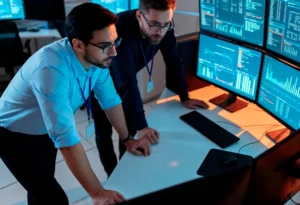An excellent way to tell if a cantaloupe is ripe is to pick it up, inspect it, and smell it. However, antivirus software does not have the same sniff test, so how does one choose? Kaspersky Anti-Virus is rated highly by independent antivirus testing labs, which evaluate and rate dozens of antivirus solutions.
We followed every laboratory that tested it, and it earned top scores or near-top scores in all their tests and ours. It provides the same excellent protection as Kaspersky Security Cloud Free, without the clutter that comes with all the premium features that aren’t available. Furthermore, this antivirus offers complete access to tech support via phone and live chat.
A subscription to Kaspersky with three licenses costs $59.99 per year, and five licenses cost $79.99 per year. It’s only $39.99 for three licenses from F-Secure, but that’s pretty standard. Also, for $59.99, Norton AntiVirus Plus gets you just one license. Using McAfee, you can protect the devices in your household running Windows, macOS, Android, and iOS for the same $59.99 price.
Since the last review by you and the experts, Kaspersky’s main window has remained essentially unchanged. It still has a slight white texture and ample whitespace. Featured are a status panel at the top, a button for More Tools at the bottom, an on-screen keyboard, and controls for Scanning, Database Update, and Reports.
In addition to protecting sensitive information against keyloggers, the On-Screen Keyboard also protects you from hardware keyloggers. A number pad and arrow keys are included by default, although you can reduce their size if necessary. On the first attempt, Kaspersky required a reboot when used the on-screen keyboard.
The free version of Kaspersky Antivirus does not have the same interface as the premium version, reviewed here. A shield icon indicates that premium features require an upgrade on the free Kaspersky Security Cloud. We tested the free edition and this product together and found that the results were identical.
Most of the improvements in this most recent edition occur under the hood. The protection against stalkers got worked for us in testing. In an alert from Kaspersky, the software got found to be capable of unauthorized access to personal data. In 2019, this type of malware increased by 35 percent, according to a Kaspersky report.
Integrated With Free Edition
Free Kaspersky Security Cloud offers all the same antivirus protection as the premium version. System Watcher, which was previously available only in paid products, is included as well. We share the following features, and you can learn more about the free software in our review.
Kaspersky is regularly tested by the four independent labs we follow. According to all four labs’ rankings, Kaspersky earned 9.7 out of 10 points (out of a maximum of 10). Tested by three labs, Bitdefender scored 9.9 points. Lab tests consistently result in perfect or near-perfect scores for both.
While Kaspersky did not do so well in my actual malware protection test, we always leave the details to the researchers and labs. With a 9.3 out of 10, Kaspersky comes out on top, while Bitdefender comes in second with 8.6 points. With Webroot SecureAnywhere AntiVirus, our latest malware collection received a perfect 10 point score.
Kaspersky Full Review
Many additional features within Kaspersky can significantly boost your online security, in addition to a good antivirus scanner. In addition, Kaspersky is a straightforward program, making it a perfect choice for non-techies.
Although more affordable antiviruses are on the market; Kaspersky offers several competitive payment plans and a 30-day money-back guarantee.
Secure Your Computer with Kaspersky
Antivirus Engine
As part of Kaspersky’s virus scanning process, it uses cloud-based machine learning and a virus database. Kaspersky’s cloud-based scanner is used to analyze any new or potentially malicious files it detects. A cloud-based malware scanner then uses machine learning to
identify whether the file is legitimate or not. Norton, McAfee, and Bitdefender are among the top antivirus brands that use signature databases and machine learning. During my tests, Kaspersky also detected all of my malware samples – it caught 100%.
Kaspersky scans viruses in five different ways:
- Performing a quick scan. Checks the system startup files, the memory files, and the boot sector.
- Complete scan. Scan every file on your system, every folder, and every sector on your system.
- Scan selectively. This software allows you to scan any folder, drive, or file.
- Scan of removable drives. A portable hard drive or USB stick gets scanned.
- An assessment of vulnerabilities. Analyzes the exposure of your system, which includes out-of-date applications and software that may contain malware.
As part of Kaspersky’s scanning features, users can specify when a scan should occur, run after their program starts, and run after every update. We also hid over 1,000 malware samples on Kaspersky’s testing computer, including viruses, trojans, rootkits, ransomware, and keyloggers. A “Quick Scan” followed, which took just 2 minutes to complete. That was quick. Taking VIPRE, for example, a “Quick Scan” takes 10 minutes, so the process is 5 times slower.
Since ‘Quick Scan’ only examines critical areas, such as those loaded when the OS starts up, it did not detect every malicious sample we hid on our system. However, this was not unexpected since ‘Quick Scan’ only looks in critical areas. As a result, since the “Quick Scan” detected around half of the samples, Kaspersky immediately recommended a “Full Scan” to dig deeper into the system, which was performed as a next step.
Bitdefender’s 1-hour scan time was beaten by the full scan, which took about 45 minutes. Kaspersky found every single malware sample on the system during its scan – the scanner performed exceptionally well. During the scan, Kaspersky did not experience any slowdowns – the computer continued to run normally.
Upon completion of the scan, a window called “Quarantine” was displayed on the screen.
Kaspersky allows you to restore the infections, despite quarantining and deleting them. The restore option provides for the restoration of legitimate files that would have got removed in the first place. Even most users wouldn’t want to do that. As a result, no false positives during the testing with Kaspersky got identified.
Continuing the scan after you cancel will result in Kaspersky failing to detect and fix malware, repeatedly notifying you. If the scan was interrupted, you could go to the “Notification Center” for more options for handling the malware.
Our next step was to test Kaspersky’s real-time protection. The program operates silently in the background, scanning the apps you install or open on your device and checking them against Kaspersky’s virus database.
By using real-time protection, we were unable to download every single malware sample to the machine. Kaspersky notified us when malware got detected immediately after it saw a threat. Following the display of the malware details, we could remove it directly from the computer.
A ransomware simulator was then run, and Kaspersky’s real-time protection stopped it before it could lock even a single file. As a final step, our “Vulnerability Scan” looked for applications that might be targeted by hackers or malicious software.
Two instances of outdated software got detected on the computer during the vulnerability scan, but the report was highly detailed. The scanner, for example, detected an outdated Photoshop version and provided a complete explanation of why the vulnerability occurred, how hackers exploited the exposure, and how to fix the issue. A downside to Kaspersky is that it doesn’t allow apps to be updated. Avira, for instance, offers an auto-update feature that can resolve all of the vulnerabilities on your system quickly.
Despite the concerns about Kaspersky’s new antivirus engine, it is an excellent piece of software – it has a 100% detection rate, offers several types of scanning, and provides real-time protection. In addition, your system will not slow down if you run a complete scan.
Password Manager
Kaspersky’s password manager secures all your confidential information, such as passwords and bank accounts, with 256-bit AES encryption and zero-knowledge policies.
Kaspersky’s free password manager lets users store only 15 passwords, which isn’t enough for most users. The premium version of the password manager does not limit the number of passwords you can keep in the premium version of the password manager. Wh`le Kaspersky’s premium password manager isn’t bad, we are disappointed that it isn’t included in the least expensive plan.
It would be best to create a master password when you first open Kaspersky’s password
manager (separate from the antivirus). If you ever lose this password, Kaspersky cannot help you access your password vault. While we like that Kaspersky is an actual zero-knowledge password manager, we’d like to see Kaspersky add account recovery options or emergency access, as Dashlane and LastPass have.
During the tests, Kaspersky’s auto-save and auto-fill always worked perfectly during
the period we tested it. Once you import your passwords, you will need to install a browser extension (available for Chrome, Firefox, Yandex, Edge, and Safari). Nevertheless, Kaspersky Auto-Fill is only available on PCs and Macs, not on mobile.
Parental Controls
Parental controls (Safe Kids) are pretty good at Kaspersky – they’re intuitive and have several features that make it easy to protect your kids online. Parents can also download a separate parental control app like with the password manager. You can set up the software in just a few minutes, and it includes a tutorial and a piece of advice on how to discuss parental controls with your children. Kaspersky Safe Kids comes with the following features:
- Limitations on usage�
- Filtering of content on� sites and apps�
- Monitoring social� networks (Facebook, VK)�
- Location tracking (for� iPhone and Android only)�
During my tests, we were able to schedule the computers, and we also had the option of
blocking the test computer when the time limit was reached.
Our experience with Kaspersky’s content filtering was also good: we defined categories to limit sites and set exceptions. Additionally, you can enable Safe Search so inappropriate content doesn’t appear in search results, including Google, Yahoo, Bing, Yandex, and YouTube.
Plans and Pricing for Kaspersky
Each Kaspersky package includes quite a few features, so the prices are quite reasonable.
When using Kaspersky Anti-Virus, you can choose whether you want protection on three, five, or ten computers running Windows. Whether you have Windows, Macs, or Android devices, Kaspersky Internet Security can protect them all. As well as safeguarding 5 or 10 Windows, Mac, Android, or iOS devices, Kaspersky Total Security delivers comprehensive protection.
Kaspersky’s main antivirus product line does not include a free product. Despite this, Kaspersky Security Cloud Free has repackaged a discontinued product called Kaspersky Anti-Virus Free. However, it has limited VPN functionality and essential antivirus protection, which is what this review mentions.
Kaspersky Antivirus: Is it Safe?
The Kaspersky antivirus is safe. In a scandal a few years ago, Kaspersky was accused of collaborating with Russia – while the company denied this, the accusations severely damaged the company. However, Kaspersky has since introduced its Global Transparency Initiative to rebuild public trust and its reputation.
Norton, McAfee, and Bitdefender are all better at detecting malware than Kaspersky. Also, Kaspersky has some good web protection features, including decent antiphishing protection, a secure browser, a virtual keyboard, and anti-tracking.
Moreover, Kaspersky offers a multitude of additional tools, including system cleanup tools, VPN software, password managers, encryption and shredding software, as well as a Recovery Disc for cleaning infected computers.
The parental controls provided by Kaspersky are great, as they allow parents to set schedules, content filters, locations, and social media monitoring. As part of the parental controls, geofencing alerts users when children leave a predefined safe zone.



